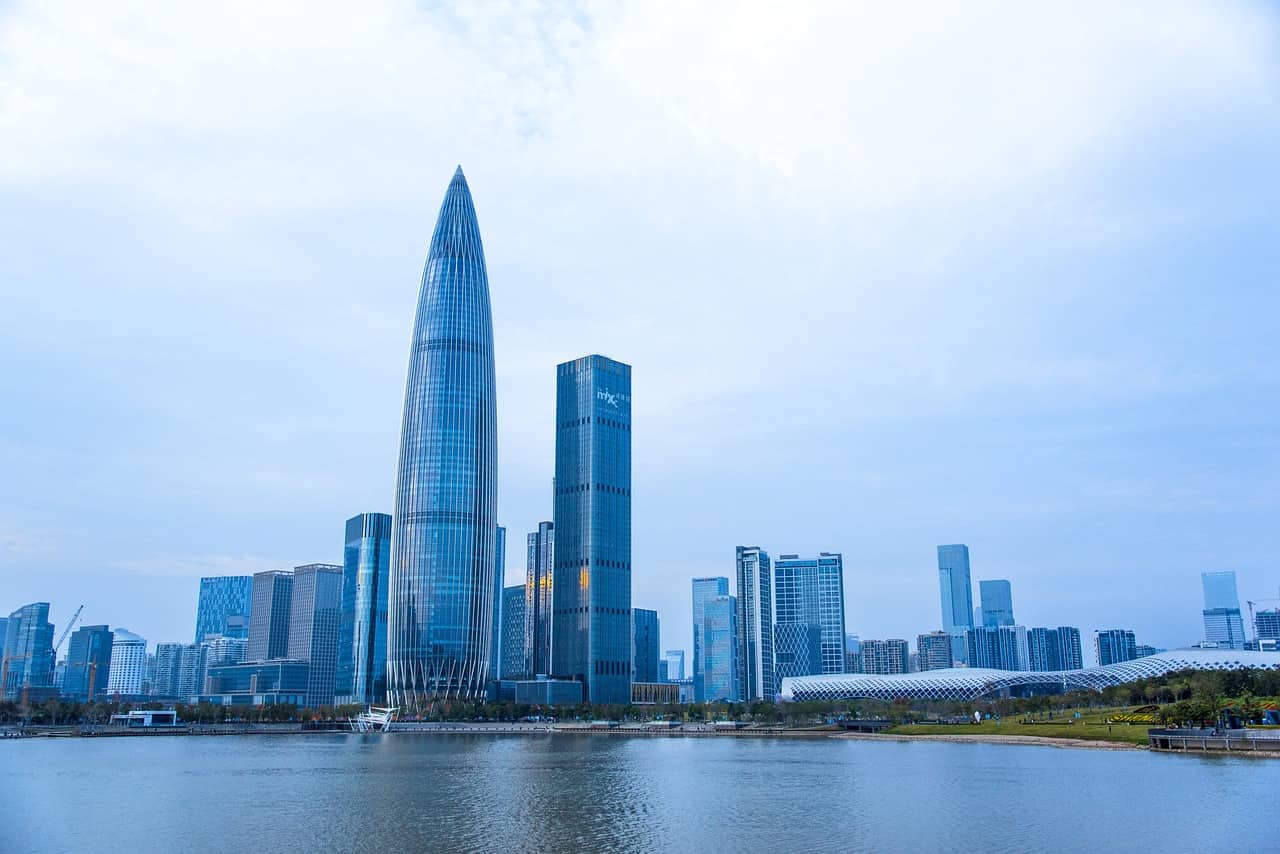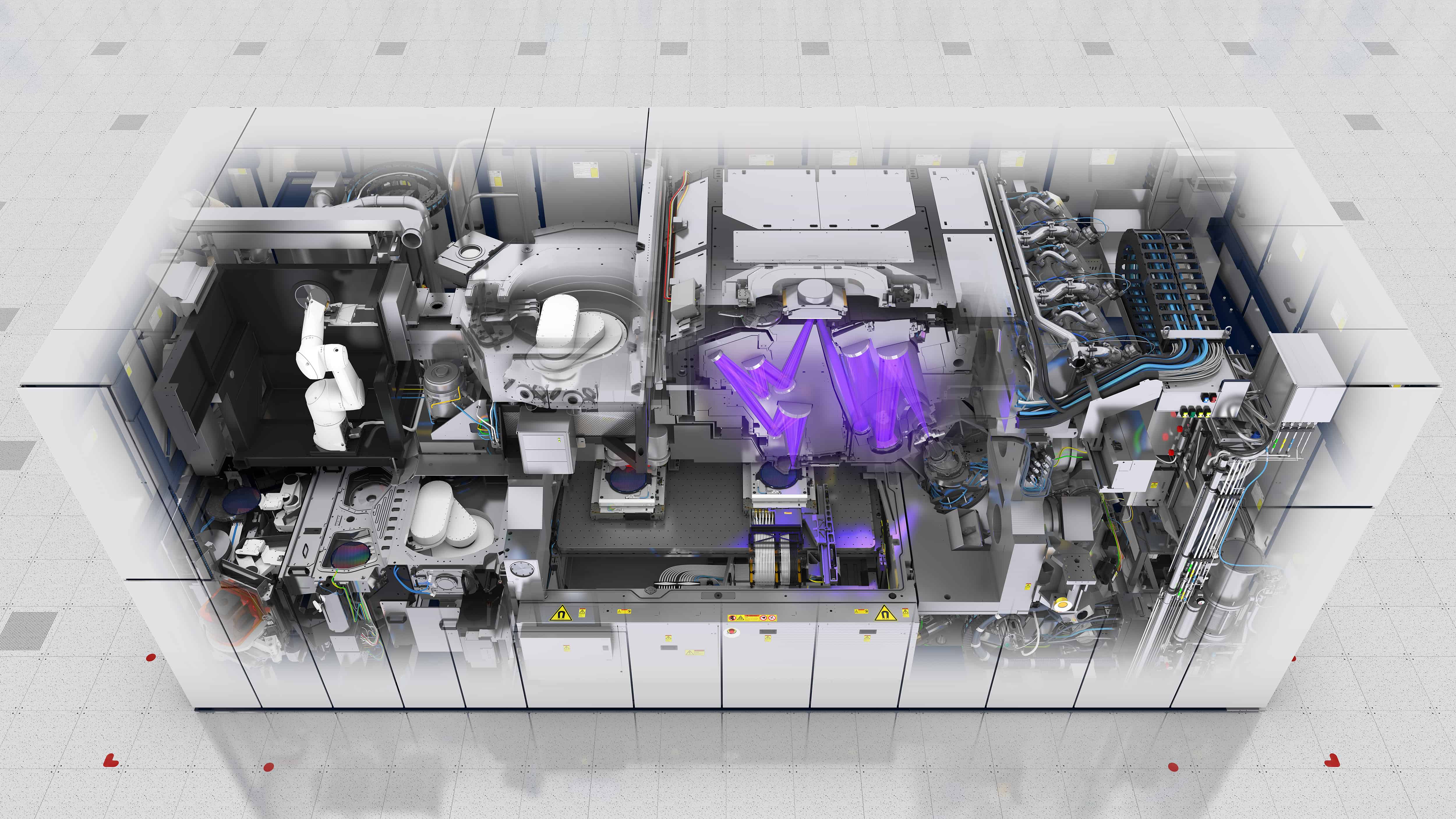
ASML’S booth at the China International Import Expo was thronged by visitors, including government agency delegates dressed in black, South China Morning Post reported earlier this week. The Dutch chip equipment maker displayed a timeline of their China business development and a part of one of their deep ultraviolet (DUV) lithography machines. These machines are currently at the center of ongoing moves to fortify US chip sanctions against China by Washington.
In his newsletter, Craig Addison, a production editor on the SCMP tech desk in Hong Kong, expects the ‘men in black’ to be somewhat disappointed about what ASML showed their Chinese audience. “From a distance, it appeared as though a full Twinscan DUV system was on display, but on closer inspection, it was an empty Twinscan shell.” Whether they were really disappointed remains to be seen – like Addison, those officials probably knew that for a trade show no complete chip machine is built.
Raiders of the Lost Ark
Addison also described the enormous piles of chip-making gear in current China. “In the last scene of Steven Spielberg’s Raiders of the Lost Ark (1981), the camera pulls back to reveal an enormous warehouse stacked with crates of artifacts hidden away by the US government. One could imagine a similar warehouse in China today. The crates would hold a different kind of treasure – semiconductor production equipment. Given that some of these machines are bigger than Hong Kong mini-buses, the space needed to store them all would be huge.”
Tons of foreign chip-making gear have been stockpiled by China in recent years – exceeding what is needed for current or even near-future production levels. “That’s why companies like ASML in the Netherlands and Silicon Valley-based Lam Research are reporting China sales reaching 46 percent and 48 percent of total revenues, respectively, in the third quarter”, Addison reports.
China is now focusing on the production of “mature chips” because the country is no longer allowed to receive the machines needed for advanced chip production. The mature chips are a big market anyway so the Chinese keep investing in them. On top of that, because of covid and the many orders from other fabs, there is a backlog of deliveries to China. ASML, for example, has only been able to deliver half of what was ordered. With the other customers rescheduling their deliveries, new room to deliver those machines (which were often ordered more than a year ago) is appearing. As a result, sales to China are now sharply higher for ASML and some other western companies.

Buying spree
“The stunning surge in Chinese imports from the Netherlands over the past few months is a result of Beijing’s buying spree of Dutch chip machinery company ASML before the drawbridge gets pulled up”, said Sander Tordoir, a senior economist at the Centre for European Reform.
ASML will be restricted from shipping certain DUV lithography systems, including its Twinscan NXT1980Di, to certain factories in China. The Dutch firm introduced the system, which has become an industry workhorse for many Chinese wafer fabs, in 2015. “If there are no available local substitutes and the 1980Di is off the table, the impact would be huge in advanced nodes as well as mature nodes,” Addison quotes Drady Wang, an associate director with research firm Counterpoint.

Meanwhile, in Shanghai, 47 chip-related companies are represented in the “integrated circuit special section” in the China International Import Expo (CIIE). Next to ASML, the companies displaying their wares include US chip giants Qualcomm and Micron Technology, and Samsung Electronics from South Korea.
Moreover, according to Chinese media, ASML is looking to speed up the delivery of mature-node lithography machines this year to meet strong demand in China. While ASML cannot sell its most advanced equipment to China, it can sell most of its products to clients in the country to produce so-called ‘legacy chips’, which are used widely in everything from automobiles to home appliances.
“Demand outside of China has experienced great fluctuations during the downward market cycle, but China’s current demand for mature node products remains very strong,” Shen Bo, senior vice-president of ASML and president of its China arm, said at a media briefing last week, according to a report by Chinese media outlet Yicai.







